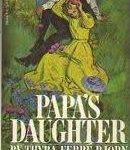Should Authors Critique Others’ Books?
 Apparently I’ve been missing a stirring controversy within the Christian-fiction and Christian-visionary-fiction blogosphere. Perhaps you have as well, but if that’s the case, Sally Apokedak (who’s also written for this site) provides a summary for us all, in her recent post Bellyachers.
Apparently I’ve been missing a stirring controversy within the Christian-fiction and Christian-visionary-fiction blogosphere. Perhaps you have as well, but if that’s the case, Sally Apokedak (who’s also written for this site) provides a summary for us all, in her recent post Bellyachers.
In short: is it un-Christian or rude for a Christian, especially an author, to write a negative review of a novel?
This issue is not limited to one market, one kind of writer, one religious group, or to people who lean to the left or right politically. I can remember way, way back when there was a flare up among Christian writers of women’s fiction where some of the authors asked, “Didn’t your mama ever teach you that if you can’t say something nice you shouldn’t say anything at all?” If I remember correctly BJ Hoff was so distressed she shut down her blog for a while and Angela Hunt urged Christians not to critically review one another.
And Apokedak brings her own reasoning, which — to me, so far — seems unassailable.
There’s a whole lot more at stake than our right to safely give honest reviews. I can easily say I won’t speak about books in public.
Well, then.
What will I speak about?
What’s next? I won’t speak about moral issues or political issues or religious issues in public? What can I say that won’t offend anyone? Can I speak the name of Jesus? A lot of people find him offensive? Can I quote from the Bible? Many think it’s a hate-filled book.
The nonfiction-critique argument seems the best. And if Christians are meant to critique one another’s beliefs and actions in love — and from Scripture we know they are — can’t we also critique one another’s art and thus make it better and bring glory to God? Isn’t this what editors are for? If not, then where does one draw the line?
Apokedak offers a near-closing thought that could also remind us why over-sensitivity isn’t the answer:
This is the part that bothers me about these flare-ups when they arise: We seem to have come to the conclusion that if someone disagrees with us or disapproves of our lifestyle or fails to gush about our artwork or agree with our politics, that means he hates us.
Aside from offering honest thoughts on fiction, this gets even trickier when it comes to nonfiction critique. If a professing “Christian” teacher said something un-Biblical, and a Christian lovingly but firmly responded (even in public, as the Apostle Paul did with Peter in Galatians 2), is that also automatically unloving?
If I say that Rob Bell’s new book — about how “hell” is only self-inflicted and can’t last forever if God is truly loving — is full of false teaching, does that mean I must hate Rob Bell and he’s truly a victim simply because he has critics?
Or might love actually come in the form of saying, if necessary: Man, your house is on fire, don’t stop to save your stuff, you need to grab your family and get out!
Or even: Dude, your novel need/needed work. I don’t think God would be glorified as much as He would be if you edited it better and worked on your character development.
From Learning from bad books, part 7:
Faithful are the wounds of a friend;
profuse are the kisses of an enemy.Proverbs 27:6
This is like sanctification. It’s painful. And I wonder if comparing novel-editing to growing in holiness isn’t just an analogy. The two are related. Through listening to others’ criticisms of my work, being willing to make changes or even defend with grace a story as-is, God helps me grow.
Because I’m often a style and substance nitpicker (whether for right or wrong reasons), I’m also trying harder to keep that in mind as I’m reading others’ novels. Despite my inner sin-shrapnel, I can’t just mock others’ works and fail to apply the lessons I’d wish on them to my own self. Knowing I’ll fail so many times, even if I’m published, will aid in a humble perspective.
That is Christian love — the same kind that also puts a badly behaving professing “believer” out of the church until he repents (1 Corinthians 5). Writing a bad book certainly isn’t as sinful as incest! But how often might the just-be-nice folks, who may pretend a bad book is just fine, do the same thing with a person and thus accidentally enable un-Godly hypocrisy?










































As an author of fiction, I personally don’t write book reviews and I fall on the side of not reviewing another author’s fiction work for the following reason. Within our Christian walk we have creative license to exercise the gift and talent God has give us. If the book doesn’t fall into the ‘sin’ category and does not violate Scripture, then not saying something is perfectly fine. There is no hypocrisy in withholding an ‘opinion’ – and that’s all a review is – an opinion. It is not backed by the authority of Scripture, it carries no weight in and of itself. If the book falls into the sin category, then Matthew 18 should be followed with personal contact rather than broadcasting it online or in a blog review.
I do however, believe that if a non-fiction book wrongly portrays God, misrepresents Scripture and causes harm to the Gospel, it is a Christian’s duty to speak up using Matthew 18. Scripture is the divining rod, the highest standard.
What did I miss?
I know this debate was going on over at Mike Duran’s website. I didn’t know it spread like wildfire?
I review all books, Christian and secular. I did have to do a bad review on two books that I can immediately recall at the moment and said IN LOVE what I saw wrong with the books. I don’t think there’s anything wrong with it.
How can we improve or grow if we go on our way unchallenged?
One thing I consider before talking about a book I don’t like is why? Is it because its not in a genre I like? I didn’t mesh with the writing style? A character annoyed me?
If its any of the above, I usually put a disclaimer. Just because I don’t like contemporary women’s fiction doesn’t mean the book was bad. We all have different tastes. And others may like the character that annoyed me (Example: the movie What about Bob?… I highly disliked Bob and could totally understand Richard Dreyfuss’s character’s point of view).
But there are times when something apart from my own personal tastes stands out that as a reviewer I will point out. Many times this has to do with theology or something in the book contrary to a Christian worldview (since I do my review for Christians, I point these out).
Thanks for the links to my post, Stephen. I’m honored.
But how often might the just-be-nice folks, who may pretend a bad book is just fine, do the same thing with a person and thus accidentally enable un-Godly hypocrisy?
That is very real danger for me. I don’t say it’s a problem for others who have chosen not to give negative reviews. But it’s my struggle. My tendency is to not tell the truth because I don’t like to hurt people’s feelings. It’s not so much that I care about their feelings—I’m not that saintly. No, it’s a selfish thing. I don’t want to hurt their feelings because I don’t want them to be mad at me. I want everyone to like me. (I’m just as insecure as the authors who are complaining about bad reviews.)
I think people won’t like me if I’m not nice because I was raised with the “if you can’t say anything nice, don’t say anything at all” deal. That’s an unbiblical deal. God never tells us that. How many times did his prophets say things that weren’t nice?
So there is this whole wrong-headed mindset we are fighting here. A mindset that says if we don’t affirm others, we hate them. People ask for tolerance but what they really want is affirmation. In the church and out of the church. To criticize art is hateful and to speak of sin is hateful. That’s because there are no absolutes anymore. No absolutes in life and no absolutes in art. To each his own. Beauty is in the eye of the beholder and righteousness is in the eye of the beholder. You do what’s right for you and I’ll do what’s right for me.
I think we need to fight this thinking at every opportunity.
Why, oh why is this topic even brought up? I know why! I was just thinking about this the other day. As a book reviewer I must provide unbiased reviews of other authors secular or Christian. Normally I might have a scripture or two to back up what I just said but I really don’t think this is about that. I think this is about writers’ feelings being hurt by other writers.
Did I mention I am also a writer? No, I am not a Stephen King, or Stephenie Meyer or a J. K. Rowling, but I know one day I will have a published novel and someone will critique it, while I am critiquing another writer’s words. So, what is the solution?
Grow a thick skin. If I am in love with a book, that is fine. If someone likes my book, great! If not-why? Yet, if someone has written a book I didn’t like, I owe them the decency of telling them why.
It is so bizarre (or perhaps providential) that I stumbled upon this topic when I spent half the morning trying to formulate my feelings about it all on my own.
Christians should be honest, kind, and humble. Sometimes sticking to the “honest” part makes it hard for people to receive critique. (And sometimes sticking to the “humble” part makes it hard for people to give it in a Christian way).
I know how blue it makes me when someone doesn’t like my writing (and I hate that a single negative comment, no matter how small, no matter how earnest, has more lingering power than a dozen positive ones), so it’s naturally very hard for me to tell someone when I don’t like something about theirs. I know how it will make them feel.
Taking all this into account, I concluded that negative public critique of other writers’ work was not something I am spiritually equipped to handle, and it’s okay if I consciously choose not to do it in my blog. I’m really more interested in saying “Hey these books are out there!” than “These are the good ones and these are the bad ones according to me” anyway.
Privately, though, if another writer (or artist) wanted to know, I would tell them, and often do so with my friends. My writing has benefited greatly from such advice, once my pride got over itself. Anyone who really wants to write well and be published will learn this lesson in time.
I appreciate critique. I know that for the most part it is simply one person’s opinion, but it IS one person’s opinion that is offered to me. Of all the people that read this or that- this one person took the time to share what they thought. I appreciate that much of it no matter what they have to say. Most people are just too busy to take that time. If one person feels strongly enough to share their thoughts, it is highly probable that there are several unspoken opinions that would agree. I take critical feedback as suggestions no matter how they are presented. Never take it personal, rarely take it as authoritative, always try to use it to improve if possible. If I can change the opinion of that one person regarding my writing- how many other people might appreciate my writing more as well?
I don’t critique as freely as I once did. I never realized how critical I was until a professor pointed it out to me- and embarrassed me over it. I didn’t realize how sensitive people were to my opinions. To me any critique was simply opinion, and could be brushed off as easily as taken to heart. Apparently most people don’t experience criticism the same way- too many people take it all deeply personal.
There is no such thing as an objective review- all reviewers are biased humans. A humble approach to feedback is wise. But we should also speak our opinions- praises encourage more of what we like, criticisms make improvement of what we don’t like a possibility. I don’t know about those thin-skinned writers out there, but I know I am still learning and would actually like all the feedback I can get.
Really well said, sir.
Because I edit for a living, I tend to approach criticism the same way. Sure, negative reviews irritate me and even get me down–but ultimately, I can usually learn from them. To me, having to develop a thick skin is just part of writing professionally.
Faith is “Faith King” your real name? What a great name.
Yes, it is my real name. Thanks. I’ve always liked it myself. I’m excited to follow more of this group too.
In my experience most Christian fiction is trite and not well written. As a Christian, I wish there was better Christian fiction available becuase I enjoy reading. Let’s stop writing “fluff” and start writing something that digs a little deeper…and please, let’s all try to write beyond a 3rd grade reading level.
Critique away (but please, no comments about my spelling). 😀
And that brings to the usual chicken-and-egg-style question, though Genesis 1 (fifth day of creation) helps a Christian answer the actual question (“chicken”) much more easily:
Which came first? Editors who publish trite fiction? Or readers who want it?
It seems that negative and positive reviews, always based in grace and not consisting of personal attacks against an author (or a genre), will help bring about change. In fact, I might say they already have and the precedent has been set: against previous attitudes of stories-are-useless, came along writers who wrote prairie romances, and later in other genres (such as Peretti’s novels) that helped reverse that Christian publishing trend. Now, if only we could expand it …
The good news is that(as far as I know), I’ve given positive feedback on great books. There was hardly any room for a negative or harsh comment.
When it comes to craft, we should critique each other. Otherwise, how are we going to get better??